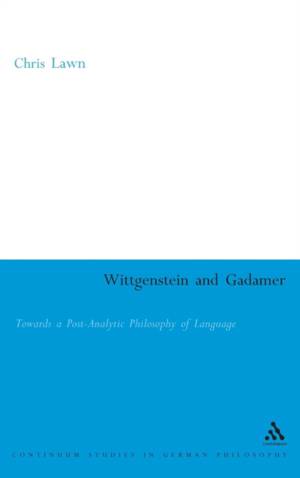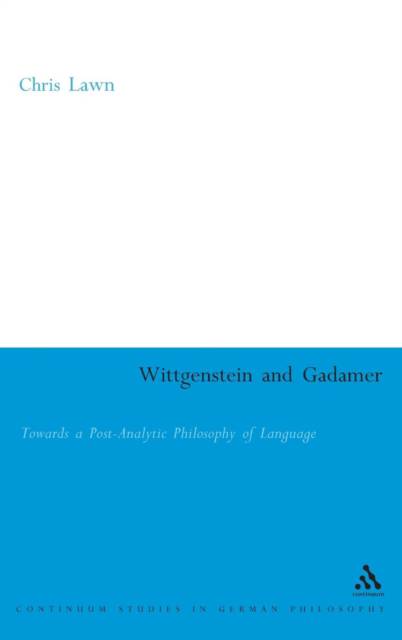
- Afhalen na 1 uur in een winkel met voorraad
- Gratis thuislevering in België vanaf € 30
- Ruim aanbod met 7 miljoen producten
- Afhalen na 1 uur in een winkel met voorraad
- Gratis thuislevering in België vanaf € 30
- Ruim aanbod met 7 miljoen producten
Omschrijving
This is the first comparative study of the pioneering work on language of Ludwig Wittgenstein and Hans-Georg Gadamer.
The book focuses on how Wittgenstein and Gadamer treat language in their accounts of language as game and their major writings on the subject-Philosophical Investigations and Truth and Method, respectively. Chris Lawn goes on to offer a critique of Wittgenstein's account of linguistic rules, drawing upon Gadamer's philosophical hermeneutics, particularly his emphasis upon tradition, temporality, historicality, and novelty. The text demonstrates how paying attention to such elements-excluded by Wittgenstein's conception of rules-in fact strengthens Wittgenstein's position from a hermeneutical perspective. Finally, Wittgenstein and Gadamer investigates the possibility of connection between Wittgenstein's focus upon lexical particularity and Gadamer's greater concern for the universal and the general.
Specificaties
Betrokkenen
- Auteur(s):
- Uitgeverij:
Inhoud
- Aantal bladzijden:
- 161
- Taal:
- Engels
- Reeks:
Eigenschappen
- Productcode (EAN):
- 9780826475299
- Verschijningsdatum:
- 1/02/2005
- Uitvoering:
- Hardcover
- Formaat:
- Genaaid
- Afmetingen:
- 166 mm x 238 mm
- Gewicht:
- 430 g

Alleen bij Standaard Boekhandel
Beoordelingen
We publiceren alleen reviews die voldoen aan de voorwaarden voor reviews. Bekijk onze voorwaarden voor reviews.











